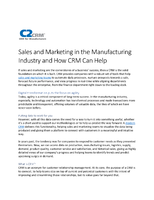IPC urges Call to Action regarding TBBPA.
Share:
Press Release Summary:
Companies are urged to lobby the European Union (EU) Council and Parliament with regards to the new revision for the RoHS Directive that calls for the restriction of Tetrabromobisphenol-A (TBBPA), the flame retardant used in more than 80 percent of printed circuits. The Oko Institut, private consultants hired by the EU Commission, identified TBBPA for possible restriction under RoHS even though it has been determined to be safe for the environment and human health.
Original Press Release:
IPC Encourages Industry Members to Act on the Following Call to Action
CALL TO ACTION ON THE RESTRICTION ON HAZARDOUS SUBSTANCES (ROHS) REVIEW
The Restriction of the Use of Certain Hazardous Substances in Electrical and Electronic Equipment (RoHS) Directive impacted every facet of the supply chain and forced the electronics industry to make enormous, expensive and burdensome changes, forever transforming the electronics industry landscape.
The European Union (EU) is currently revising the RoHS directive and may restrict additional substances, create additional compliance requirements and make the exemption process even more difficult. Contact EU Council and Parliament officials now to prevent unwarranted RoHS regulations. Encourage EU officials to base their decisions on science and ensure that the final revised RoHS Directive does not restrict Tetrabromobisphenol-A (TBBPA), the flame retardant used in more than 80 percent of printed circuits.
If TBBPA is added to RoHS, the EU will be initiating a troublesome precedent by restricting a substance for political instead of scientific reasons. The Oko Institut, private consultants hired by the EU Commission, identified TBBPA for possible restriction under RoHS. TBBPA has undergone a comprehensive EU risk assessment that determined it is safe for the environment and human health. Through the efforts of IPC and other industry representatives, the Commission was persuaded to rely upon science and keep TBBPA off of the list of substances for priority assessment under RoHS.
Unfortunately, TBBPA may still be added to RoHS and become a restricted substance. The EU legislative procedure allows the Parliament and Council to propose amendments to RoHS, including restricting the use of critical substances used in electronics, such as TBBPA. It is vital for the electronics industry to continue to adamantly oppose any recommendation to restrict TBBPA based on the fact that there is no science to support its restriction.
Industry involvement in the RoHS review is vital. Companies are urged to answer the call to action and aggressively lobby the EU Council and Parliament to base their decisions on science and ensure the final revised RoHS Directive does not add TBBPA. EU officials are politicians and not scientists. It is your responsibility to educate EU officials on the issues and lay the groundwork before they decide their final position on the proposed RoHS revisions. When officials are able to understand our industry's issues, they are much more likely to vote with your concerns in mind.
Visit www.ipc.org/global-efforts to view expert analysis of the proposed RoHS review, instructions on how to contact EU officials, and a draft letter that you can use to write to EU officials. Attend a special forum discussing the proposed RoHS revisions at the IPC European Electronics Industry Executive Summit in Berlin, Germany on April 27, 2009. Learn more at ipc.org/berlin-meetings. It is critical to let EU officials know that any additional substances to RoHS will critically disrupt the electronics supply chain, or worse, drive your company out of business.




